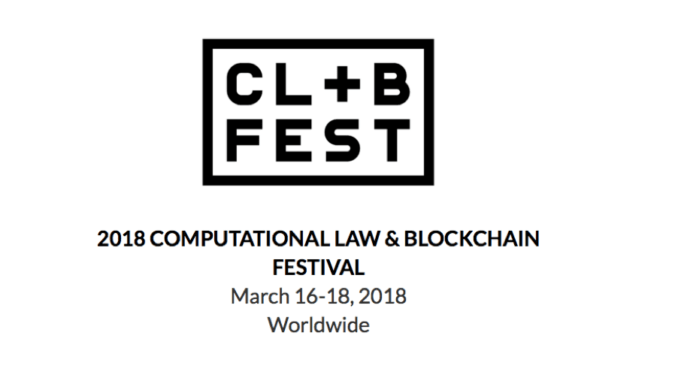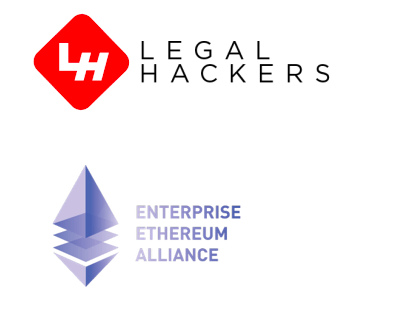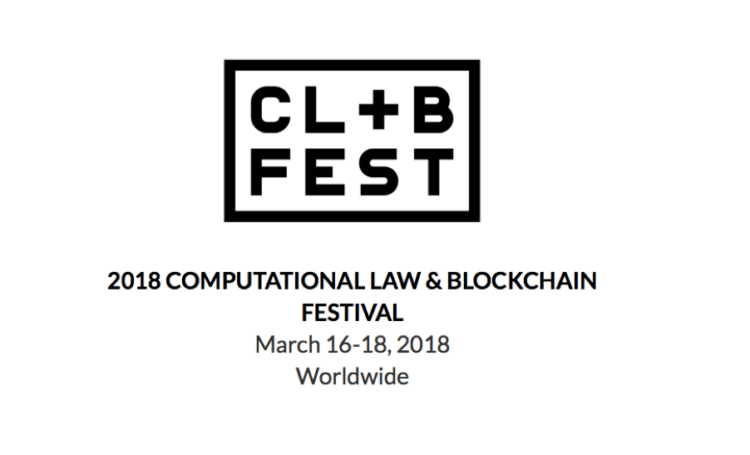
You’ve seen hackathons, legal design jams and legal tech conferences, now it’s time for the Computational Law & Blockchain Festival, a new global event organised by Legal Hackers and supported by an array of other tech pioneers, from the Enterprise Ethereum Alliance, to OpenLaw, to the Accord Project.

At present there are 37 nodes signed up, with teams from Madrid in Spain, to Nairobi in Kenya, and from Nashville, Tennessee, USA to Bangalore, India.
But, there is still time for many other nodes to join in (including London, which at present is missing from the list), or for people and teams to get involved in the nearest node to them (check out the list so far, here). The event starts on Friday 16th March and runs all weekend.
But, you may well ask, what is all of this about? What are the event’s goals? What do we do if we want to get involved? Artificial Lawyer asked Larry Bridgesmith, who is taking part in the Nashville node, and who is also the Founder and CEO of legal tech company, Dash, which is ‘the world’s first interoperable, AI-powered platform for aligning people, projects, and processes for optimum results’. He is also Adjunct Professor, Program on Law & Innovation Coordinator, at the Vanderbilt Law School.
Take it away, Larry.

First and most importantly, the CL+B Fest is not primarily a hackathon.
It’s a decentralised conference with three tracks: LEARN, HACK, and DISCUSS.
The overarching purpose of the Fest is to bring people together from around the world to share knowledge, explore issues, and develop free and open-source resources related to computational law and blockchain technology, including educational resources, policy overviews, and rapid prototypes. The HACK track is just one part of the Fest, and not all nodes will participate in it (it’s up to the node organisers).
What we’re doing is a new model of conference: a simultaneous, decentralised conference on a single topic with the goal of sharing knowledge and building resources. We’re doing computational law and Blockchain this month, but it could easily be about data protection, access to justice, or sharing economy regulation in the future.
Will CL+B teams be able to use any tech they want?
It depends on the specific challenge issued and accepted by the participants. The CL+B Fest is a platform for anyone to submit global challenges related to computational law or blockchain technology. Participants can then choose what challenge to tackle. Each challenge has its own rules, requirements, judges, and awards (entirely determined by the challenge presenter). In general the challenges are blockchain agnostic (some, however, require the use of a particular blockchain to be eligible to receive a prize).
Will they be expected to produce a working model at the end?
Right now, each challenge requires a conceptual design and a rapid prototype (which is not necessarily a functional app, but helps visualise what a solution might look like). But again, the rules and requirements are up to the challenge presenter.
It’s the nature of a hackathon to bring together a group of cognitively diverse people to focus on creative problem solving within tight time constraints. Ideally, teams create a solution and iterate to near-MVP stage, and momentum carries the project to further development post-hackathon. Realistically, teams will reach different stages of development given the time and resource constraints inherent in a hackathon.
A hackathon generally is as much about the actual experience of working through the design and build process to problem-solve as it is about what is actually created.

And, given that Blockchain is part of the Festival’s focus, can you please comment on how you see the technology at present?
First, technologists must clearly understand and define the problem to be solved, ideate solutions, and then use the technology (most often a proper combination of technology applications) that provides the best solution. This may be blockchain, this may not be blockchain.
Blockchain is not a silver bullet. It’s a tool. Blockchain is no more appropriate for all solutions than would be AI, SQL, or any other unique tech application. However, there are some applications for which no other technology could perform as well. If security, immutability, transparency and distributed trust constitute the solutions required for a specific problem, blockchain should be considered.
Thanks, Larry!

And, if you’d like to learn a bit more about the process and goals of the event, please see here. Below is also a quick TL/DR summary of some of the key points, but it’s recommended to check this out in detail via the link above.
Good luck to everyone! Coming right after the GLH, it’s great to see the energy and optimistic spirit of legal tech surging again around the globe. As the song goes: ‘Ain’t no stopping us now, we’ve got the groove!’ Artificial Lawyer looks forward to reporting on what goes down.
—
‘Recommendations on how to host a successful node. (TL/DR version.)
- Build an organising team and partner with local meetups
- Choose your Festival tracks, content (keynotes, workshops, etc.) and schedule
- Develop a budget and seek sponsorships or in-kind support
- Find a venue with great A/V, connectivity, and food options
- Invite local speakers, moderators, mentors, and judges
- Promote your node and invite participants through social media, etc.
- Find volunteers to help manage your node (1 volunteer per 10 participants)
- Draft an enforceable code of conduct to promote a welcoming environment
- Comply with applicable laws, rules, and regulations
- Have fun!
—
Note: the full list of academic partners of the CL+B is here:
MIT Media Lab | Benjamin N. Cardozo School of Law | Brooklyn Law School | Cornell Tech IC3 | Legal Technology Lab | New York Law School | Stanford CodeX Blockchain Working Group | UCLA Blockchain Lab | Vanderbilt University Law School